The 2025 University of Notre Dame Library Research Award competition, sponsored by the Hesburgh Libraries, resulted in 12 awards given to students across diverse disciplines.
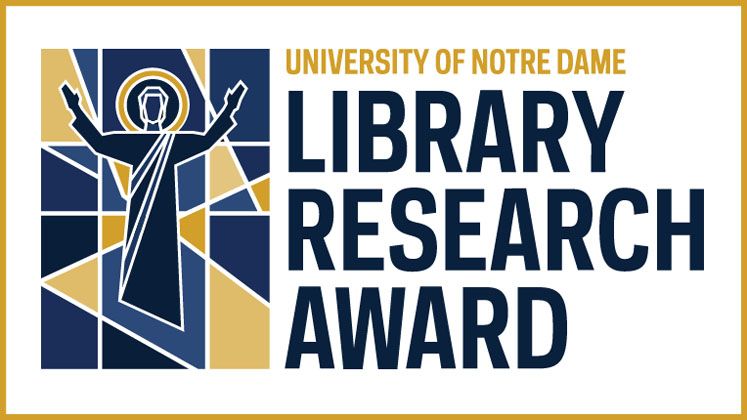
The 2025 University of Notre Dame Library Research Award competition, sponsored by the Hesburgh Libraries, resulted in 12 awards given to students across diverse disciplines. These annual awards are earned by undergraduate students who demonstrate excellence in research skills by using a breadth of library resources and services for their course assignments, research projects and creative endeavors.
“The research our students pursue in the Hesburgh Libraries is always impressive. We’re committed to connecting our readers to the information they need, and it’s fascinating to see what sophisticated and imaginative scholarship they create with it,” Margaret Meserve, Interim Edward H. Arnold Dean, Hesburgh Libraries and University of Notre Dame Press, said. “I’m delighted to recognize these students’ accomplishments with our Library Research Awards.”
Undergraduate students were invited to submit a brief essay describing the many ways in which they used library resources for a project or assignment completed during summer 2024, fall 2024, or spring 2025.
Congratulations to the 2025 Library Research Award winners!
Capstone Project or Senior Thesis Award Category
First Place — Áine Heaney, Architecture
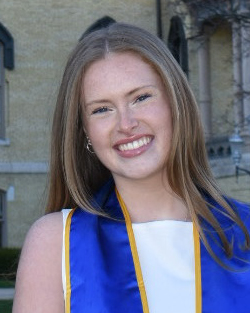
Áine Heaney won first prize for her Design VIII thesis, “Na Fáilte: Country House & Farm,” advised by Sean Patrick Nohelty, professor in the School of Architecture. Heaney’s project, inspired by her father’s birthplace in Ireland, reinterpreted the Irish country house often associated with the British ruling class.
“This thesis would not have been possible without the resources from the Architecture Library, the guidance of Morgan Wilson, the support of the Archives, my time in the Makerspace, and the enriching experience of my travels.”
Second Place — Chloe Miller, English and Africana Studies
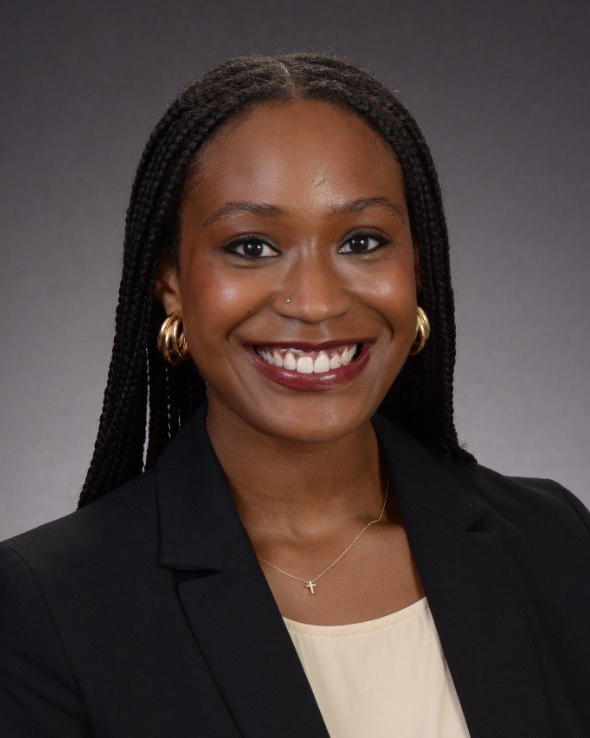 Chloe Miller won second prize for her thesis paper, “‘A Metaphysical Dilemma’: The Language of Black Female Subjectivity in the Poetics of Ntozake Shange,” advised by Cyraina Johnson-Roullier, associate professor in the Department of English. The paper examined the connection between language and the self, and how formal innovation in poetry might offer strategies for Black women to gain self-definition beyond their racialized and gendered oppression.
Chloe Miller won second prize for her thesis paper, “‘A Metaphysical Dilemma’: The Language of Black Female Subjectivity in the Poetics of Ntozake Shange,” advised by Cyraina Johnson-Roullier, associate professor in the Department of English. The paper examined the connection between language and the self, and how formal innovation in poetry might offer strategies for Black women to gain self-definition beyond their racialized and gendered oppression.
“Using the free and accessible resources the Hesburgh Library provided helped me through every stage of the research process, from finding a research topic to writing a bibliography,” Miller said. “These experiences have been monumental in my growth as a young scholar, and have prepared me well for my future endeavors as I pursue a Ph.D. in English this fall.”
Sophomore, Junior Award Category
First Place — Michael Li, Neuroscience and Behavior (B.S.)
Michael Li won first prize for his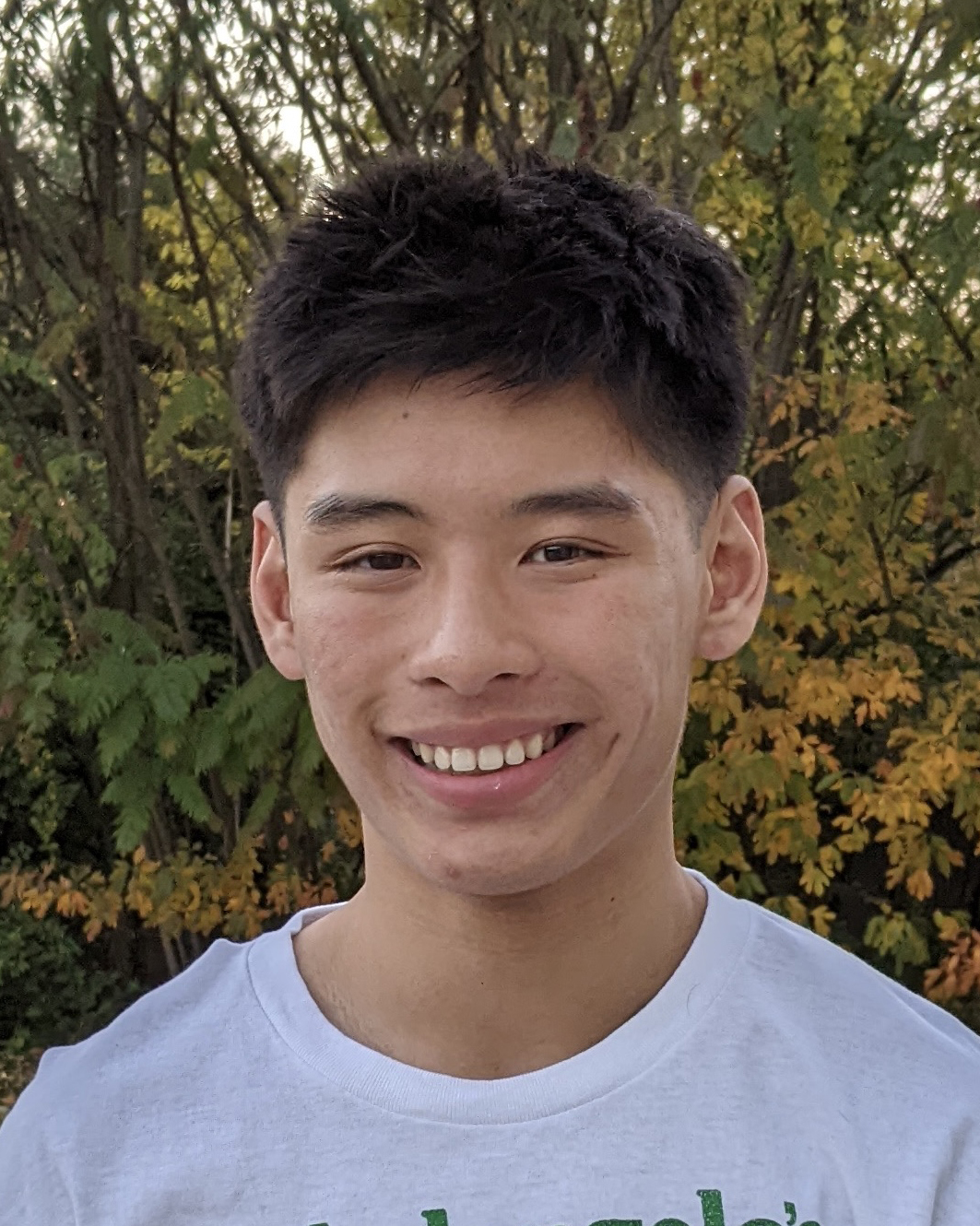 undergraduate research project, “Artificial Intelligence-Powered Detection of Skin Cancer,” advised by Jianneng Li, Archibald Assistant Professor of Cancer Biology in the Department of Biological Sciences. For this project, Li created an AI tool that can identify skin cancer with a 90% accuracy rate.
undergraduate research project, “Artificial Intelligence-Powered Detection of Skin Cancer,” advised by Jianneng Li, Archibald Assistant Professor of Cancer Biology in the Department of Biological Sciences. For this project, Li created an AI tool that can identify skin cancer with a 90% accuracy rate.
“My journey from an initial, far-fetched idea to a high-performing diagnostic tool … was not merely assisted, but made possible, through the resources and supportive environment provided by the Hesburgh Library system,” Li said. “The library served as the indispensable catalyst for my self-directed research achievement, transforming a challenging goal into a tangible reality.”
Second Place — Luke Reynolds, Neuroscience and Behavior (B.A.) and Philosophy
 Luke Reynolds won second prize for his research paper, “Borrowed Sensation: Sensory Metaphor and Neurological Simulation in Gertrude of Helfta,” advised by CJ Jones, associate professor of German and Russian Languages and Literature. The research paper examined the interdisciplinary question: Can reading a mystical text simulate mystical experience itself?
Luke Reynolds won second prize for his research paper, “Borrowed Sensation: Sensory Metaphor and Neurological Simulation in Gertrude of Helfta,” advised by CJ Jones, associate professor of German and Russian Languages and Literature. The research paper examined the interdisciplinary question: Can reading a mystical text simulate mystical experience itself?
“Looking back, the most transformative part of this project wasn’t just writing this paper — it was learning how to research a question that hadn’t quite been asked before,” Reynolds said. “The Hesburgh Libraries gave me tools to navigate that uncertainty, access to search engines and archives, and people who could walk me through the mess of an interdisciplinary project. This wasn’t just about collecting sources; It was about learning to think through a library, and learning how research itself becomes a form of encounter.”
First-Year Student Award Category
First Place — Rachel Cooper, Global Affairs and Korean
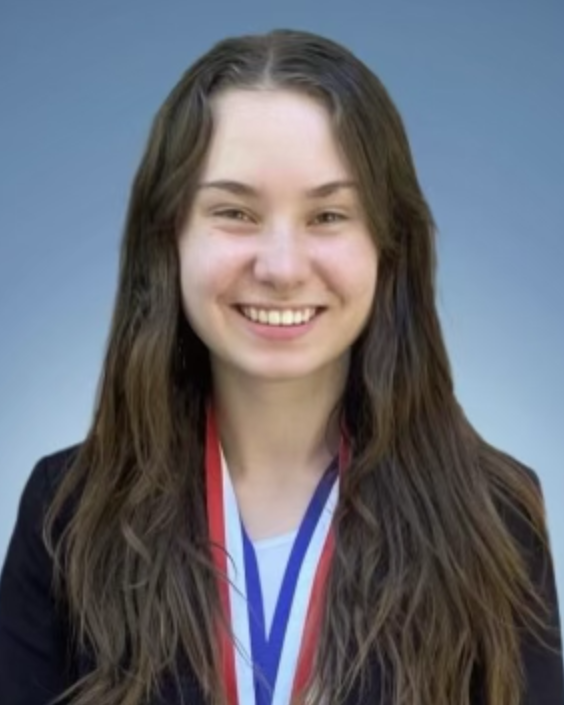 Rachel Cooper won first prize for her research proposal, “Peacebuilding Across Parallels: Korean-Irish Nonprofit Collaboration for Peace and Disarmament,” advised by Orla Stapleton, assistant professor of development studies in the Keough School of Global Affairs. The research proposal she created for Stapleton’s class aimed to analyze how Irish civil society organizations could collaborate with similar South Korean organizations to alleviate tension on the Korean Peninsula.
Rachel Cooper won first prize for her research proposal, “Peacebuilding Across Parallels: Korean-Irish Nonprofit Collaboration for Peace and Disarmament,” advised by Orla Stapleton, assistant professor of development studies in the Keough School of Global Affairs. The research proposal she created for Stapleton’s class aimed to analyze how Irish civil society organizations could collaborate with similar South Korean organizations to alleviate tension on the Korean Peninsula.
“The wealth of resources offered by Hesburgh Libraries made this project possible,” she said. “I could not have successfully crafted my research project proposal without the Hesburgh Libraries' diverse collection of books, databases, and other materials; access to invaluable research technology platforms; and interactive sessions with knowledgeable librarians.”
Second Place — Maria Eduarda Grill da Silveira, Global Affairs and Economics
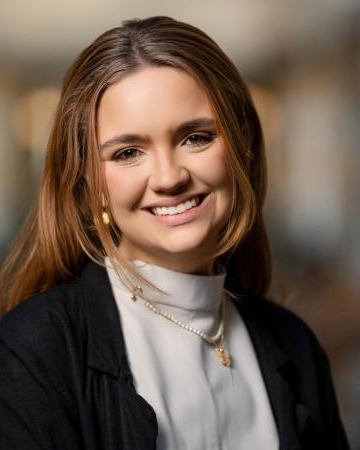 Maria Eduarda Grill da Silveira won second prize for her research paper, “Private Prisons and Mass Incarceration – Profits Over Justice,” advised by Jason A. Springs, professor of religion, ethics, and peace studies in the Keough School of Global Affairs. The paper explored how private prison corporations profit from the incarceration of marginalized populations in the United States.
Maria Eduarda Grill da Silveira won second prize for her research paper, “Private Prisons and Mass Incarceration – Profits Over Justice,” advised by Jason A. Springs, professor of religion, ethics, and peace studies in the Keough School of Global Affairs. The paper explored how private prison corporations profit from the incarceration of marginalized populations in the United States.
“As a student interested in global affairs, I now realize how essential it is to navigate unfamiliar systems with analytical clarity and cultural sensitivity,” Grill da Silveira said. “The Hesburgh Libraries equipped me with both the tools and the mindset to do that … This year, Hesburgh Libraries helped me build both the skill and the confidence to pursue research as soul-sized work. And for that, I am deeply grateful.”
Group Project Award Category
Faith Groody, Environmental Science
Kaitlin Mohlenkamp, Biological Sciences

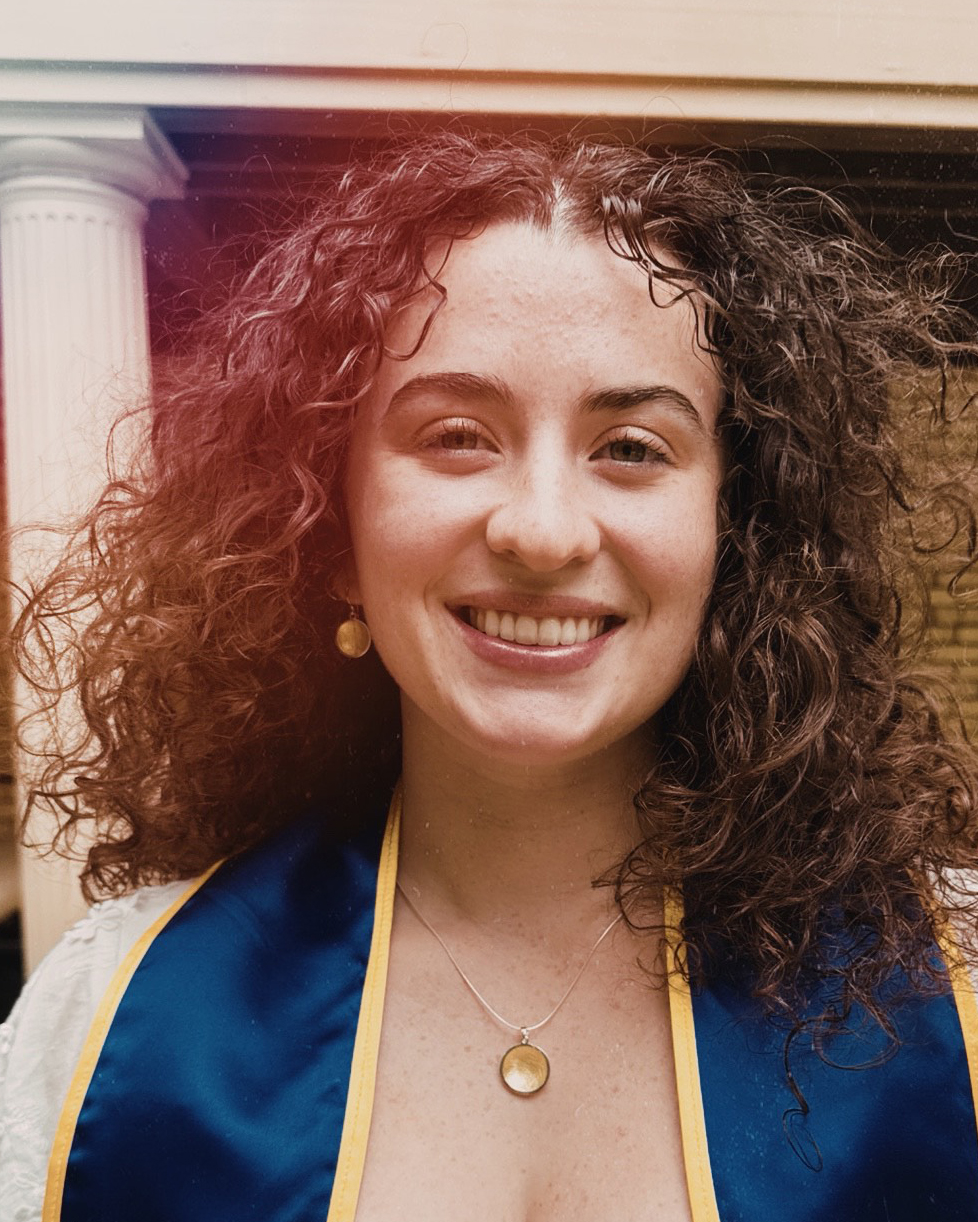
Faith Groody, junior, and Kaitlin Mohlenkamp, senior, won honors for their research project, “Population density and vocalization patterns of the Galápagos sea lion in wild and urban environments," advised by Gary Lamberti, Nieuwland Professor Emeritus of Aquatic Science in the Department of Biological Sciences, and Jeremy Fein, professor in the Department of Civil and Environmental Engineering and Earth Sciences. For their project, Groody and Mohlenkamp took part in the Galápagos Islands Practicum in Field Environmental Biology and Geosciences and traveled to the region to study sea lions.
“Our results show promise in quantifying anthropogenic influence on these endangered populations and improving human understanding of how these influences could be remediated,” they said. “This research could not have been done without the resources of the Hesburgh Library, from our GoPro and voice recorder rentals to our use of the literature databases.”
Emerging Scholar
Gayoung "Bona" Park, Mechanical Engineering
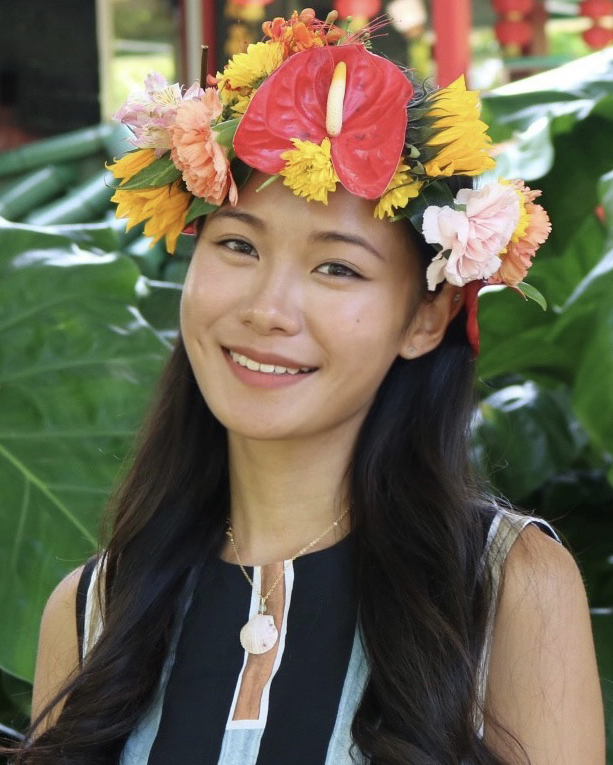 Gayoung "Bona" Park won honors for her research project, “Soft Everting Prosthetic Hand and Comparison with Existing Body-Powered Terminal Devices,” advised by Margaret Coad, assistant professor in the Department of Aerospace and Mechanical Engineering. For her project, Park combined soft robotics, biomechanics, and human-centered engineering to develop a novel prosthetic hand.
Gayoung "Bona" Park won honors for her research project, “Soft Everting Prosthetic Hand and Comparison with Existing Body-Powered Terminal Devices,” advised by Margaret Coad, assistant professor in the Department of Aerospace and Mechanical Engineering. For her project, Park combined soft robotics, biomechanics, and human-centered engineering to develop a novel prosthetic hand.
“My ability to manage all tasks related to this project was significantly enhanced by the infrastructure provided by Hesburgh Libraries,” she said. “While journal access helped define the intellectual foundation of the project, the Library’s physical and technological spaces enabled me to translate that knowledge into clear, professional, scientific communication.”
Hayden Kirwan, History
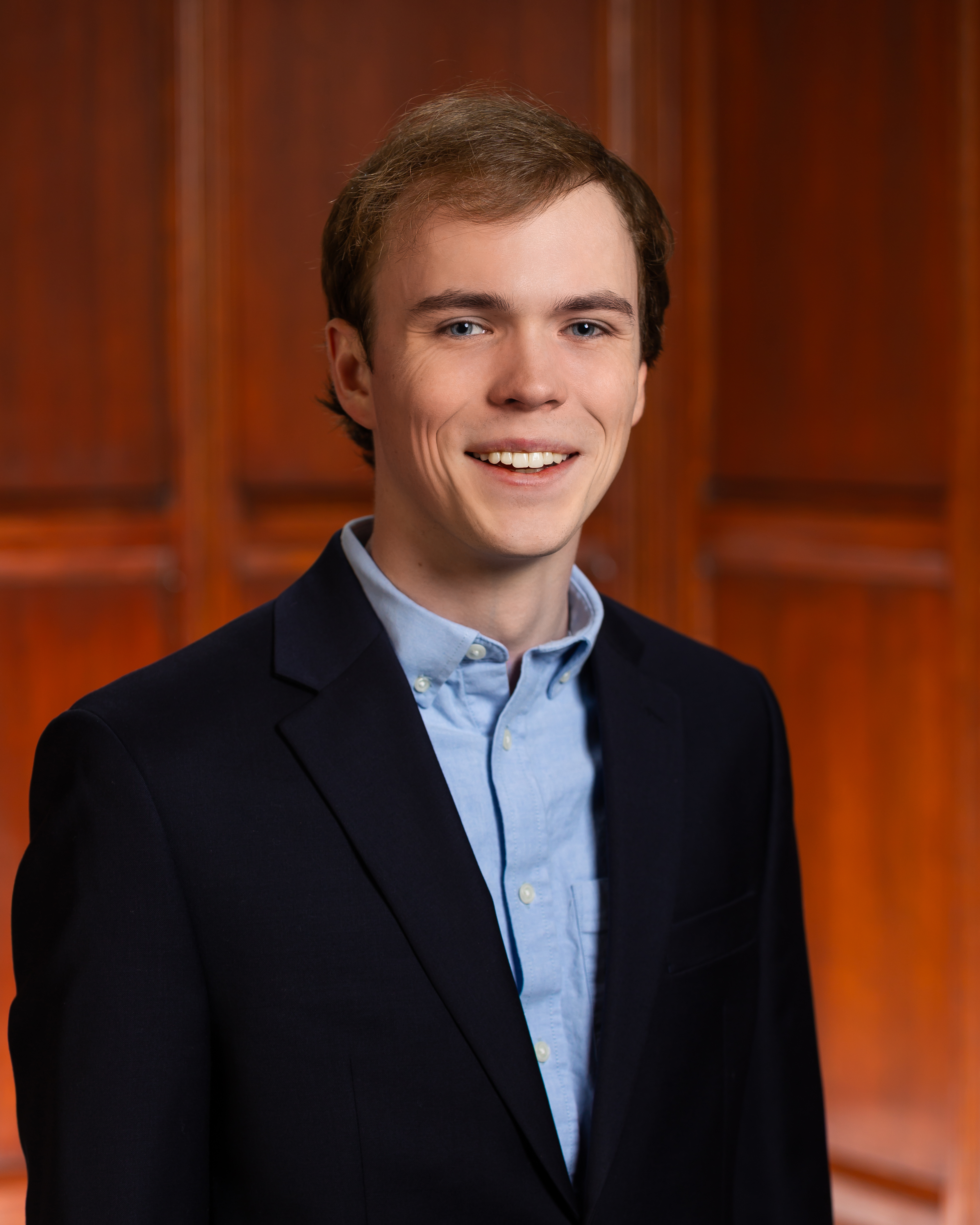 Hayden Kirwan won honors for his honors thesis, “Conservation Occupation: How the Virginia Blue Ridge Became Shenandoah National Park,” advised by Jon T. Coleman, Andrew V. Tackes College Professor of History in the Department of History. The research project culminated in the senior authoring a revised history of Shenandoah National Park Removals.
Hayden Kirwan won honors for his honors thesis, “Conservation Occupation: How the Virginia Blue Ridge Became Shenandoah National Park,” advised by Jon T. Coleman, Andrew V. Tackes College Professor of History in the Department of History. The research project culminated in the senior authoring a revised history of Shenandoah National Park Removals.
“I started my project without funding or an advisor, but I had the Hesburgh Library,” he said. “I am grateful to the entire staff for their swiftness, expertise, and provision of resources. Without Hesburgh Libraries’ collections, resources and staff, this project would not exist.”
NFCDS Award Category
Gaspar Larrain Varas, Business Analytics
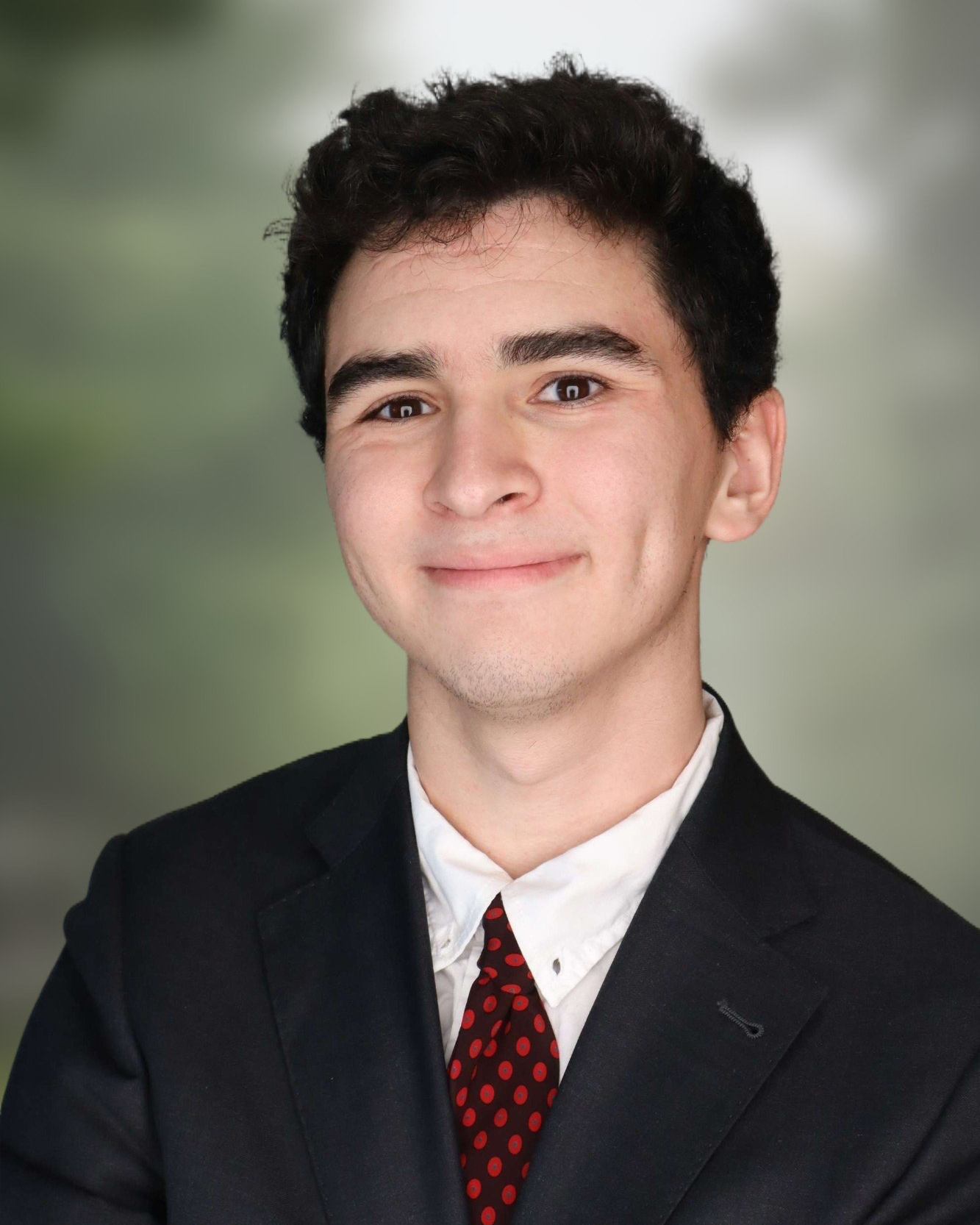 Gaspar Larrain Varas won honors for his research paper, “Redreport, Technological Innovation Blueprint Regarding Sexual Assault,” advised by Alexi Orchard, assistant teaching professor and director of undergraduate studies for the Idzik Computing and Digital Technologies minor in the Technology & Digital Studies Program, and Michelle Marvin, assistant teaching professor and associate director of the University Writing Center. The project resulted in a web application tool for anonymously reporting sexual assault on college campuses.
Gaspar Larrain Varas won honors for his research paper, “Redreport, Technological Innovation Blueprint Regarding Sexual Assault,” advised by Alexi Orchard, assistant teaching professor and director of undergraduate studies for the Idzik Computing and Digital Technologies minor in the Technology & Digital Studies Program, and Michelle Marvin, assistant teaching professor and associate director of the University Writing Center. The project resulted in a web application tool for anonymously reporting sexual assault on college campuses.
“Built upon the three pillars of data analytics, web development and problem research, Redreport required a wide range of professional expertise, digital tools and sources,” Larrain Varas said. “With Hesburgh’s holistic approach to scholarship at Notre Dame, most of these resources were easily accessible even as a first-year undergraduate student.”
Jamie Reintjes, International Economics and Chinese
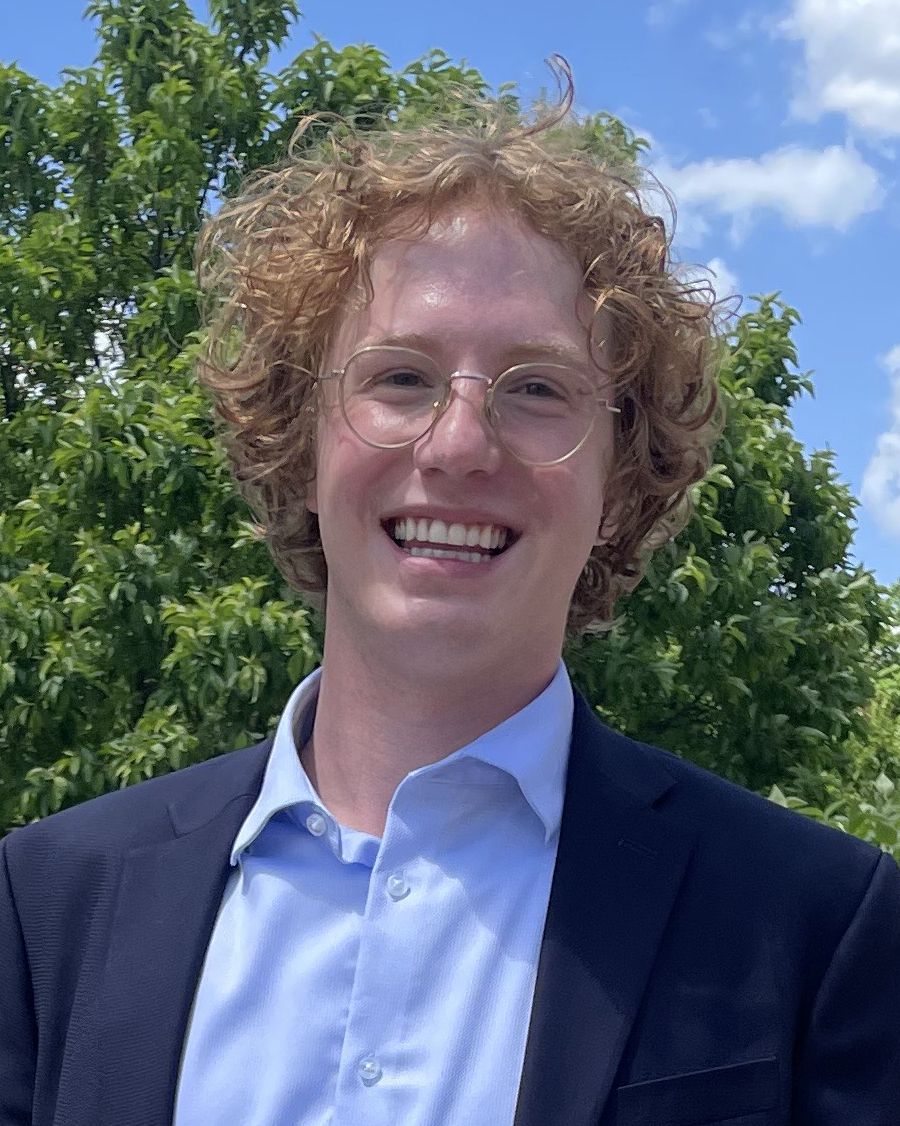 Jamie Reintjes won honors for his senior honors thesis, “The Impact of Fentanyl-Related Deaths on U.S. Press Coverage of China,” advised by Professor Lakshmi Iyer and Assistant Professor Victoria Barone in the Department of Economics. His thesis explored Americans’ sentiment towards China, in the uptake of media attention to China’s role in the fentanyl epidemic.
Jamie Reintjes won honors for his senior honors thesis, “The Impact of Fentanyl-Related Deaths on U.S. Press Coverage of China,” advised by Professor Lakshmi Iyer and Assistant Professor Victoria Barone in the Department of Economics. His thesis explored Americans’ sentiment towards China, in the uptake of media attention to China’s role in the fentanyl epidemic.
“Thanks to my experience with Eric Lease Morgan and the Hesburgh Library, I am excited to continue expanding on this research in graduate school,” Reintjes said. “Thanks to the Libraries’ vast network of subscriptions and database services, I have gained better familiarity with the sources that are readily available for text mining and data curation.”
Xiaoyu (Rain) Zhang, Medieval Studies and Theology
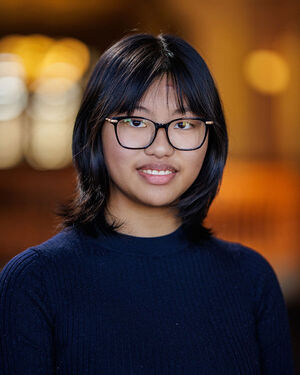 Xiaoyu (Rain) Zhang won honors for her research paper, “The Rise and Fall of Ministers in Pre-Imperial China: A Case Study of Li Si and Zhang Yi,” advised by Liang Cai, associate professor in the Department of History. Her research studied Qin-dynasty minister Li Si.
Xiaoyu (Rain) Zhang won honors for her research paper, “The Rise and Fall of Ministers in Pre-Imperial China: A Case Study of Li Si and Zhang Yi,” advised by Liang Cai, associate professor in the Department of History. Her research studied Qin-dynasty minister Li Si.
“Throughout the semester, my research journey would not have gone nearly as smoothly without the support of the Library,” she said. “The collection offers an abundance of sources and information, while the staff are kind, professional, and committed to making rare and valuable materials accessible to students. The Center for Digital Scholarship has been especially impactful, offering workshops that empower students to incorporate technology into their research — a trend that is sure to shape the future of the humanities.”